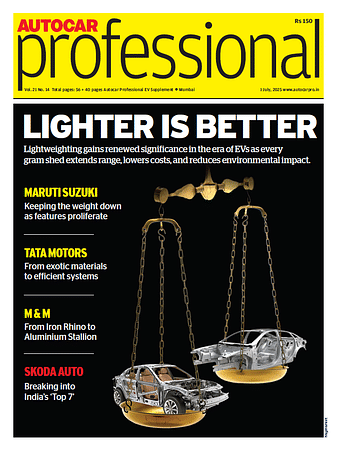Sundaram-Clayton to Sell Aluminium Die-Casting Operations at Hosur Plant
Both high-pressure and low-pressure aluminium die-casting operations at the Hosur facility will be divested, the company said.
Sundaram-Clayton Ltd, a leading automotive components manufacturer, announced today that its Board of Directors has approved the sale of its aluminium die-casting businesses at the Hosur plant to third-party purchasers. The decision was made during a board meeting held on February 19.
According to the company's disclosure to stock exchanges, both high-pressure and low-pressure aluminium die-casting operations at the Hosur facility will be divested. However, key details of the transaction remain undetermined, including the final structure of the deal, identity of potential buyer and sale consideration.
The Chennai-based company, formerly known as Sundaram-Clayton DCD Limited, informed the BSE Limited and National Stock Exchange of India that it will make further disclosures upon execution of definitive agreements. The company noted that completion of any transaction will be subject to regulatory approvals and other required permissions.
Sundaram-Clayton Ltd is a prominent Indian automotive components manufacturer specializing in aluminium die-casting. Formerly known as Sundaram-Clayton DCD Limited, the company is headquartered in Chennai, India. SCL produces components for both domestic and international markets, with expertise in both high and low-pressure die-casting technologies.
Aluminum die-casting is a manufacturing process where molten aluminum is forced under high pressure into reusable steel molds (called dies) to create precisely shaped metal components. This process is widely used in automotive, aerospace, and consumer electronics industries.
High-pressure die-casting uses greater force to inject molten aluminum into molds, ideal for creating complex, thin-walled parts with excellent dimensional accuracy and smooth surfaces. This method is faster and suited for high-volume production.
Low-pressure die-casting involves less force, with molten metal rising into the mold through controlled air pressure. This method produces components with fewer defects and better mechanical properties, often used for more structurally critical parts.
Die-casting businesses typically maintain facilities with specialized equipment including furnaces, casting machines, finishing tools, and quality control systems. These operations require significant technical expertise and capital investment.
RELATED ARTICLES
“India big in manufacturing, while Australia has critical minerals like rare earths,” says Australia's High Commissioner
India seeks long-term, reliable sources of rare earths as part of efforts to reduce dependence on China
Elektrobit Launches AutoCore Light Software for Smart Vehicle Components
New platform targets peripheral ECUs in software-defined vehicles, promising up to 30% reduction in hardware and develop...
TATA AutoComp and Skoda Group Form Joint Venture for Railway Components Manufacturing in India
The partnership will manufacture electrical propulsion systems for trains, metros, and light rail vehicles with multi-mi...





 By Arunima Pal
By Arunima Pal
 19 Feb 2025
19 Feb 2025
 20930 Views
20930 Views





 Autocar Professional Bureau
Autocar Professional Bureau


 Angitha Suresh
Angitha Suresh


